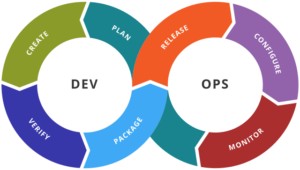Cybersecurity

Cybersecurity refers to the practice of protecting electronic devices, networks, and sensitive information from unauthorized access, theft, or damage. With the increasing reliance on the internet and electronic devices, cybersecurity has become a major concern for individuals, businesses, and governments.
Cybersecurity threats can come in many forms, including malware, phishing attacks, hacking, and identity theft. These threats can compromise the confidentiality, integrity, and availability of sensitive information, leading to financial loss, reputational damage, and even legal liability.
To protect against cybersecurity threats, individuals and organizations can implement various security measures, including:
1. Strong passwords: Using strong, complex passwords and changing them regularly can help prevent unauthorized access to electronic devices and accounts.
2. Two-factor authentication: Two-factor authentication adds an extra layer of security by requiring users to provide a second form of identification, such as a code sent to their phone, in addition to their password.
3. Anti-virus and anti-malware software: Anti-virus and anti-malware software can help detect and remove malicious software that can compromise the security of electronic devices and networks.
4. Firewall: A firewall is a security system that monitors and controls incoming and outgoing network traffic, helping to prevent unauthorized access and data breaches.
5. Encryption: Encryption is the process of converting sensitive data into a code that can only be deciphered with a specific key. This can help protect against data theft and unauthorized access.
6. Employee training: Educating employees on cybersecurity best practices, such as how to identify and avoid phishing attacks, can help prevent human error from compromising security.
7. Regular updates and patches: Keeping electronic devices and software up to date with the latest security updates and patches can help protect against known vulnerabilities and exploits.
In conclusion, cybersecurity is a critical area of concern in today’s digital age. With the increasing sophistication and frequency of cyber attacks, it is important for individuals and organizations to take proactive steps to protect their electronic devices, networks, and sensitive information. By implementing strong security measures and staying vigilant against emerging threats, individuals and organizations can help prevent cyber attacks and ensure the security of their digital assets.
Protecting your personal information from cyber attacks is essential in today’s digital age. Here are some tips to help you safeguard your personal information:
1. Use strong and unique passwords: Use a different password for each online account and make sure it is strong and difficult to guess. A strong password should be at least 12 characters long and include a mix of uppercase and lowercase letters, numbers, and symbols.
2. Enable two-factor authentication: Two-factor authentication adds an extra layer of security by requiring a second form of identification, such as a code sent to your phone, in addition to your password.
3. Use a password manager: A password manager can help you create and store strong, unique passwords for each of your online accounts.
4. Be cautious of phishing emails: Phishing emails are a common tactic used by cybercriminals to trick you into giving them your personal information. Be cautious of emails that ask for your personal information and do not click on links or download attachments from unknown senders.
5. Keep your software up to date: Cybercriminals often exploit vulnerabilities in software to gain access to your personal information. Make sure to regularly update your operating system, web browser, and other software to ensure that you have the latest security patches.
6. Use a VPN: A virtual private network (VPN) encrypts your internet traffic and helps protect your personal information when using public Wi-Fi networks.
7. Be cautious of what you share online: Be careful about sharing personal information, such as your full name, date of birth, and address, online. Cybercriminals can use this information to steal your identity.
8. Monitor your accounts and credit report: Regularly monitor your bank accounts, credit cards, and credit report for any suspicious activity. This can help you detect and respond to any unauthorized access or fraudulent activity.
By following these tips, you can help protect your personal information from cyber attacks. Remember, staying vigilant and taking proactive steps to protect your digital assets is essential in today’s digital age.




